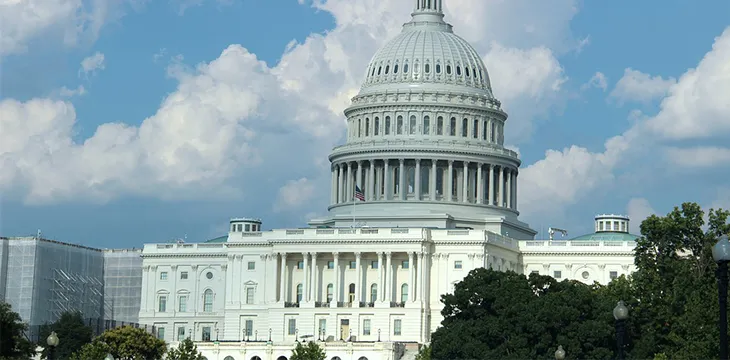|
Getting your Trinity Audio player ready...
|
Blockchain technology has just gotten a little bit of boost by the U.S. Congress. The House of Representatives has approved a bill that instructs the Financial Crimes Enforcement Network (FinCEN) to begin looking at how blockchains could assist in the global fight against financial crimes. If they had reviewed the evidence from the source, lawmakers would have already been well ahead of where they are now.
The House passed a bill on September 19, the “Advancing Innovation to Assist Law Enforcement Act.” It calls for FinCEN’s director, Kenneth Blanco, to conduct a study on how to use emerging technologies in FinCEN’s operations, stating, “The Director of the Financial Crimes Enforcement Network (“FinCEN”) shall carry out a study on […] whether AI, digital identity technologies, blockchain technologies, and other innovative technologies can be further leveraged to make FinCEN’s data analysis more efficient and effective.”
Within just a few days, the House turned the bill over to the Senate, where it now is with the Committee on Banking, Housing and Urban Affairs for its consideration. There is no word on how long it will take for the legislative piece to make its way through the chamber’s obstacle course.
As far as bills go, this one moved relatively quickly, which might be a sign that federal lawmakers are aware of how beneficial blockchain technology can be to growth, innovation and consumer protection. The bill was introduced to the House on September 5 and made it all the way through within just two weeks.
Blanco is riding the fence on the blockchain space as a whole. He hasn’t exactly been supportive of cryptocurrencies to a great degree, although he recognizes their place, but has spoken out about the benefits of blockchain technology. He stated in a speech last year, “[FinCEN is] focused on swiftly and continuously building our capabilities and understanding in the emerging technologies space to (a) rapidly identify risks, (b) close gaps, and (c) support responsible innovation through clarity.” He added, “We will continue to update our guidance relating to emerging technology, such as virtual currency, in close dialogue with industry, so that we are improving our understanding of both the risks and the clarity that is needed to support responsible innovation.”
The director understands that digital currencies are most likely not going to go away anytime soon and that they are gaining in popularity. He recognizes their potential, especially in the gaming world, and issued a reminder to casinos that, should they accept crypto, they will have to report those transactions just like any other, or suffer the consequences. He explained last month, “I encourage casinos to closely review both documents on FinCEN’s website to see how we are addressing this industry and its interactions with others in the financial sector. Casinos should be filing SARs [suspicious activity report] when they encounter suspicious CVC [convertible virtual currency] activity and any cyber events that affect, facilitate, or conduct transactions.”
Having an open mind should allow Blanco to embrace his latest task more enthusiastically. It will give him the opportunity to show lawmakers the endless benefits to blockchain technology and how it can revolutionize operations not only in finance, but in government and business administration and much more.

 07-03-2025
07-03-2025 





